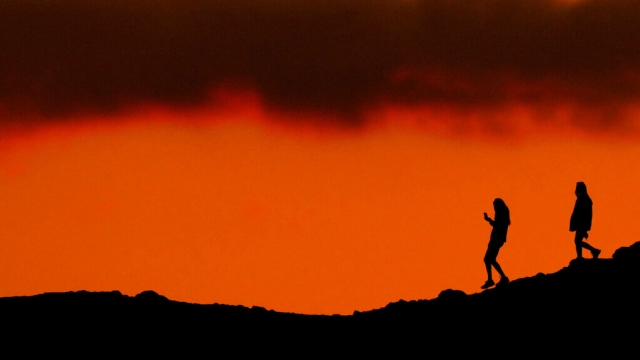Temperatures are reaching highs of 119 degrees in Phoenix, and nightfall is bringing little to no relief.
Phoenix is breaking records at night with a 10 day streak of low temperatures in the 90s.
Overnight temperatures, experts say, can be dangerous. They don't give people living without air conditioning a break from the oppressive heat.
The built environment of Phoenix and other cities can contribute to the problem. Temperatures in urban environments are often higher than their surroundings, thanks to something called the urban heat island effect.
"One of the impacts from the urban heat island is that the parking lots and the sidewalks and the buildings, those hold on to the sunlight and they release it very slowly at night and that doesn't allow us to cool off," said Dr. Erinanne Saffell, a climatologist at Arizona State University.
One review of research found this effect can push overnight temperatures in cities 2 to 5 degrees Fahrenheit higher than the area around them.
SEE MORE: The many ways that extreme heat costs you and the US
And according to a 2018 National Climate Assessment, nights are warming faster than days in most of the United States.
The excessive and prolonged heat waves combine with wildfires, severe storms and flash flooding to create a climate of extreme weather.
NASA held a briefing Thursday to address the extreme weather and its impact.
"What we know from science is human activity and greenhouse causing warming on planet and impacting people and ecosystems around the world," said Katherine Calvin, Chief Scientist and Sr. Climate Advisor at NASA.
Trending stories at Scrippsnews.com



